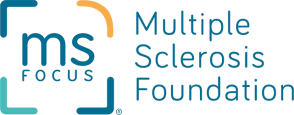Outreach
ALS Awareness & Resources

Military veterans, regardless of the branch of service, the era in which they served, or whether they served during a time of peace or a time of war, are at a greater risk of dying from Amyotrophic Lateral Sclerosis (ALS) than if they had not served in the military. For reasons as yet unknown, veterans are, in fact, twice as likely to be diagnosed with ALS as the general population.
In 2008, the Department of Veterans Affairs (VA) implemented regulations to establish a presumption of service connection for ALS, thanks to the efforts of the ALS Association, key members of Congress, and advocates. Under the regulations, the VA presumes that ALS was incurred or aggravated by a veteran's service in the military. As a result, veterans with ALS and their families and survivors are eligible for service-connected benefits.
Anyone who served at least 90 days of continuous active duty in the U.S. military may qualify for VA benefits. Survivors of veterans may be eligible for benefits, including monthly compensation, regardless of when their loved one was lost to the disease.
Qualifying veterans with ALS are entitled to receive VA disability compensation, which is a monetary benefit paid to veterans who are disabled by an injury or disease that was incurred or aggravated during active military service. Disability compensation is paid monthly and varies with the degree of disability and the number of veteran's dependents. Veterans with ALS may be eligible for additional special monthly compensation. There is a 100% disability rating minimum for veterans diagnosed with ALS. These benefits are not subject to federal or state income tax.
The VA offers a full range of health care benefits, including prescriptions, medical supplies, prosthetic items, and home improvement and structural alteration grants to pay the cost to make homes more accessible. In addition, there are a variety of other benefits available to veterans, spouses, and children. Some benefits are available even if the veteran with ALS has passed away, such as dependency and indemnity compensation, which is a monthly payment to eligible survivors. Other veteran and family benefits include insurance benefits for dependents, special adaptive housing grants, automobile grants, adaptive equipment, and aide and attendance allowance to pay for care providers.
The ALS Association encourages veterans, family members and/or survivors to learn about the VA benefits and to take advantage of these resources as appropriate. An overview of veteran benefits is available using the following:
Visit The ALS Association's Wall of Honor to see and read the stories of courage about military veterans with ALS.
If you would like to advocate for veterans with ALS, become an ALS Advocate.
MS Awareness & Resources

The National MS Society is collaborating with the Department of Veteran's Affairs (VA) MS Centers of Excellence to improve care and support services for veterans with multiple sclerosis and their families.
U.S. Dept. of Veterans Affairs - MS Centers of Excellence
In 2003, the Department of Veterans Affairs established the VA MS Centers of Excellence (MSCoE). The MSCoE consists of coordinating centers in Seattle, WA, and Portland, OR, for the western U.S., in Baltimore, MD, for the eastern U.S., and approximately 70 regional MS programs distributed throughout the U.S.
The MSCoE utilizes a network of regional programs, telemedicine, and informatics to:
• Improve care for veterans with MS
• Enhance MS education for patients, caregivers, and providers
• Promote research into the causes and treatments for MS
VA Benefits
If you are a veteran diagnosed with Multiple Sclerosis (MS) within 7 years of your separation from the military, the Veterans Health Administration may classify your illness as related to your military service and award you a service-connected disability. You may still be eligible if you separated from the military more than 7 years ago; you must have a diagnosis by a healthcare provider, preferably a neurologist, who links the symptoms you had during those 7 years directly to your current diagnosis. Some veterans have had success by using a "nexus" letter.
To find out if you are eligible, read the VA eligibility criteria or call the VA benefits line at (414) 902-5655. When applying for benefits, make sure you have a complete and ongoing journal of:
• All of your symptoms - include dates, duration, severity, names of medical providers, and any witnesses who can attest to the limitations imposed by your MS
• Questions for your healthcare providers - take it with you to all medical appointments
• File of all your medical records (military and non-military) - you must have a copy of your DD Form 214 and documentation of all your medical information to date
This information could help support a case for future rating increases. Call your local Veterans Affairs service office at (414) 902-5655.


